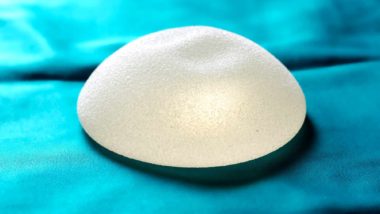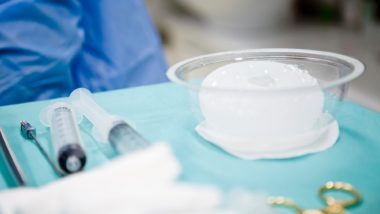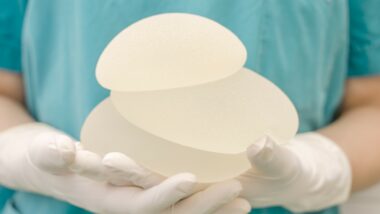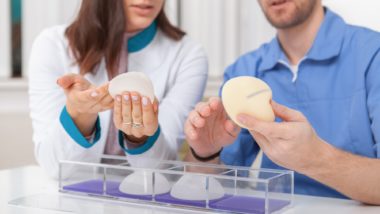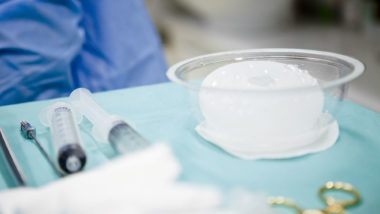
Women considering breast implant surgery might not be aware of all the risks. Like any surgery, there is a risk of complications — such as developing an infection. However there are an increasing number of reports of serious problems with certain types of implants. Many women who have developed breast implant illness (BII) claim that breast implant manufacturers and/or the surgeons who implant them have failed to warn patients about the appropriate level of risk.
Serious Complications
Most people expect that there will be a recovery period after getting breast implants. But women with textured implants are reporting more serious complications post-surgery, leading some doctors and researchers to worry about the risk profile of these products.
According to a March 2019 story published in The New York Times, the U.S. Food and Drug Administration is re-investigating breast implant safety following thousands of reports that “breast implants are causing problems like debilitating joint pain and fatigue, claims long dismissed by the medical profession.”
What Are the Symptoms of Breast Implant Illness?
Breast implant illness side effects include body odor, chest pain, chills, headaches, chronic pain, anxiety, brain fog, depression, sleep disturbance, hair loss, and neurological or hormonal issues believed to be associated with the type of implants received. Any major changes in underlying health should be reported to a doctor.
Are There Tests to Determine Breast Implant Illness?
Since the symptoms of these conditions vary, there are no diagnostic tests for women who suspect they have breast implant illness. Instead, it falls to the patient to report her concerns to her doctor to determine whether or not the issues in question could be related to breast implants.
Certain kinds of diagnostic autoimmune testing may be conducted when a doctor hears about a patient’s reaction to breast implants.
Many of the symptoms experienced by women with breast implant illness are similar to other medical conditions that also affect people who do not have implants. This can make it difficult for a woman to be taken seriously by a doctor. Academic and medical studies are still being conducted to determine what factors might increase a patient’s risk profile for developing breast implant illness.
Although it’s not certain whether a causal connection is present, the National Center for Health Research says that since 2015, more than 4,500 women have contacted the agency to report issues such as breast pain or rupture following an implant surgery.
What is Breast Implant-Associated Anaplastic Large Cell Lymphoma (BIA-ALCL)?
One of the most serious forms of breast implant problems is known as BIA-ALCL, defined by the FDA as “a T-cell lymphoma that can develop following breast implants.” According to the agency, most of the current data suggests that BIA-ALCL “occurs more frequently following implantation of breast implants with textured surfaces rather than those with smooth surfaces, and half of the reported cases were diagnosed within 7-8 years.”
BIA-ALCL may develop quickly after a woman receives breast implants and therefore the FDA recommends women with implants experiencing any symptoms should be evaluated by a doctor.
As of August 2020, the FDA recommended the recall of breast implants from manufacturer Allergan after the majority of recorded BIA ALCL cases were associated with the company’s implants.
“The FDA has been diligently monitoring adverse events associated with breast implants for decades and has been working to better understand the quality of life and satisfaction a breast reconstruction patient may experience in order to refine our evaluation of breast implant benefits and risks,” Dr. Binita Ashar, director of the FDA’s Office of Surgical and Infection Control Devices in the Center for Devices and Radiological Health, said in a press release.
“In addition, we continue to increase our scientific knowledge regarding BIA-ALCL and systemic symptoms referred to as BII, and remain committed to keeping the public informed.”
What Should I Do if I Have Symptoms of Breast Implant Illness?
Any major changes in your health should be recorded by your doctor as soon as they develop. If you notice that something is not right after your surgery, share this information with your physician. If you have already been affected, consider speaking with an injury lawyer you can find through Top Class Actions.
Can Breast Implant Illness Be Treated?
One of the most important things for someone experiencing symptoms to get screened for illness related to the breast implants. This will give the patient the most options in terms of treating the condition and symptoms.
Many doctors and device manufacturers deny the existence of BII. Doctors may acknowledge that related symptoms are real and serious, but many maintain that breast implants are not the source. More recently, some physicians have acknowledged the condition.
“Plastic surgery literature is not supportive of the notion of breast implant illness,” plastic surgeon and social media influencer Dr. Anthony Youn told the New York Post. Youn noted that, while most patients do fine with breast implants, there are also patients who suffer from real and concerning symptoms.
Although doctors like Youn are bringing attention to BII, breast implant illness still isn’t well understood in the medical community. Currently, the general treatment recommendation is to remove the breast implants causing the issue to start with. In addition to taking out the breast implants, most surgeons today recommend removing the scar tissue capsules near the implants, too.
One thing that patients should keep in mind is that the risk of continued problems could happen if the implants are taken out but are then replaced with other ones. While the initial symptoms of the illness might disappear in the short term, there’s a higher chance that these problems will come back.
Currently, there’s very limited research on what the outcomes are for patients who go through a surgery for the removal of the implants. One small study showed that for 100 patients who went through the surgery, 89 percent experienced improvement in their symptoms within three months after that procedure.
Although breast implant problems can affect many people, some early research found that people who have a family history of autoimmune issues might be at a higher risk of developing implant illness. These conditions can include chronic fatigue, allergies, migraines, or irritable bowel syndrome. Any person who has a family history of breast cancer is also more likely to develop BII, too.
Join a Free Breast Implants Side Effects Lawsuit Investigation
You may qualify for this breast implant investigation under the following circumstances:
- You were implanted with textured breast implants;
- You were diagnosed with Breast Implant-Associated Anaplastic Large Cell Lymphoma (BIA ALCL); and/or
- You’ve suffered from any illness you believe is related to the implants.
Fill out the form on this page for a free case evaluation by a breast implants injury attorney.
This article is not legal advice. It is presented
for informational purposes only.
ATTORNEY ADVERTISING
Top Class Actions is a Proud Member of the American Bar Association
LEGAL INFORMATION IS NOT LEGAL ADVICE
Top Class Actions Legal Statement
©2008 – 2026 Top Class Actions® LLC
Various Trademarks held by their respective owners
This website is not intended for viewing or usage by European Union citizens.
Get Help – It’s Free
Join a Free Breast Implants Side Effects Lawsuit Investigation
If you qualify, an attorney will contact you to discuss the details of your potential case at no charge to you.
PLEASE NOTE: If you want to participate in this investigation, it is imperative that you reply to the law firm if they call or email you. Failing to do so may result in you not getting signed up as a client or getting you dropped as a client.
E-mail any problems with this form to:
[email protected].



